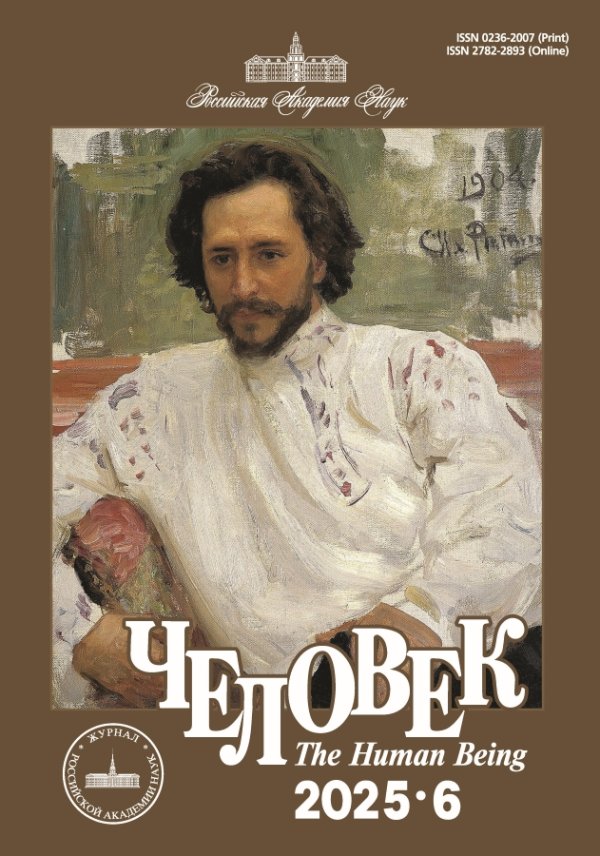The Mechanistic Metaphor in Transplantation: Blurred Identity and Objectified Corporeality
- Authors: Lavrentyeva S.V.1
-
Affiliations:
- Institute of Philosophy of the RAS
- Issue: Vol 36, No 2 (2025)
- Pages: 107-123
- Section: Social practices
- URL: https://journals.rcsi.science/0236-2007/article/view/290830
- DOI: https://doi.org/10.31857/S0236200725020061
- ID: 290830
Abstract
This article analyzes the role of the mechanistic metaphor in communication between doctors and patients, as well as in social and philosophical contexts. It shows that this metaphor, a key part of medical language, conflicts with patients’ feelings of alienation from their bodies after transplantation surgery. This conflict leads us to consider ways to change the mechanistic metaphor to help improve patients’ adherence to treatment in the postoperative period. The article is divided into several sections: the first looks at the historical development of the mechanistic metaphor. Initially defined by Descartes as a specific view of life, it later became an important part of scientific methodology in biology and medicine. In modern biomedicine, it simplifies understanding biological processes. In transplantology, it describes the body as a machine with replaceable parts, influencing everyday views of the body. The second section focuses on narratives that highlight the mismatch between the machine-like body and patients’ personal experiences after transplantation. Patients’ feelings of losing their former selves are examined through the concept of numerical identity, used in bioethics to analyze how biotechnologies affect ideas of personhood. This approach reveals that it implicitly continues the machine-body metaphor. In the third section, we explore the distinction between Körper/Leib (the anatomical body/object vs. the lived body). This distinction helps guide our understanding of the philosophical aspects of the mechanistic metaphor. It outlines starting points for a socio-humanitarian analysis of the mechanistic metaphor as an external representation of corporeality. This analysis aims to make the use of the mechanistic metaphor more complex and to bring it closer to the experiences of recipients.
Full Text
About the authors
Sofya V. Lavrentyeva
Institute of Philosophy of the RAS
Author for correspondence.
Email: sonnig89@gmail.com
ORCID iD: 0000-0002-3082-2975
Junior Researcher of the Department of Humanitarian Expertise and Bioethics
Russian Federation, 12/1, Goncharnaya St., Moscow, 109240References
- Vizgin V.P. Kartezianstvo [Cartesianism]. Filosofskaya antropologiya. 2020. Vol. 6, N 1. P. 139–162.
- Ivanyushkin A. Ya., Tishchenko P.D., Reznik O.N., Popova O.V. Iz istorii eksperimental’noi i klinicheskoi biomeditsiny: U. Garvei, S.S. Bryukhonenko, V.P. Demikhov, K. Barnard [The History of Experimental and Clinical Biomedicine: William Harvey, Sergei Brukhonenko, Vladimir Demikhov, Christiaan Barnard]. Gorizonty gumanitarnogo znaniia [Horizons of humanitarian knowledge]. 2018. N 5. P. 3–20.
- Tishchenko P.D. Chelovek, konvergentnyye tekhnologii i otkrytost’ navstrechu budushchemu [Human Beings, Convergent Technologies and Openness Towards the Future]. Konvergentsiya tekhnologiy i divergentsiya budushchego cheloveka [Convergence of Technologies and Divergence of the Human Future], ed. by P.D. Tishchenko. Moscow: Moscow University for the Humanities Publ., 2017. P. 8–22.
- Chachanidze G.D. Problema telesnosti v fenomenologii E. Gusserlya [The Problem of Physicality in E. Husserl’s Phenomenology]. Summa filosofii. 2006. Iss. 6. P. 186–189.
- Yudin B.G. Tekhnonauka i «uluchsheniye» cheloveka [Technoscience and “Human Enhancement”]. Epistemologiya i filosofiya nauki [Epistemology & Philosophy of Science]. 2016. Vol. 48, N 2. P. 18–27.
- Baedke J. Above the Gene, Beyond Biology: Toward a Philosophy of Epigenetics. Pittsburgh: University of Pittsburgh Press, 2018.
- DeGrazia D. Human Identity and Bioethics. Cambridge: Cambridge University Press, 2005.
- Allen G.E. Mechanism, vitalism and organicism in late nineteenth and twentieth-century biology: the importance of historical context. Studies in history and philosophy of biological and biomedical sciences. 2005. Vol. 36, N 2. P. 261–83.
- Giordano J. Pain and Suffering: Körper und Leib, and the Telos of Pain Care. Philosophy, Psychiatry, & Psychology. 2012. Vol. 19, N 4. P. 279–283.
- Jasanoff S., Kim S.H. Dreamscapes of Modernity: Sociotechnical Imaginaries and the Fabrication of Power. Chicago, London: University of Chicago Press, 2015.
- Langewitz W.A. The lived body (Der Leib) as a diagnostic and therapeutic instrument in general practice. Wiener klinische Wochenschrift. 2022. N 134. P. 561–568.
- Le Breton D. Identity problems and transplantation. Ethical eye: transplants. Strasbourg: Council of Europe, 2003. P. 40–49.
- Leder D. A Tale of Two Bodies: The Cartesian Corpse and the Lived Body. The Body in Medical Thought and Practice, ed. by D. Leder. Dordrecht: Kluwer Academic, 1992.
- Liaw Y.Q. An analysis of different concepts of “identity” in the heritable genome editing debate. Med Health Care and Philos. 2024. N 27. P. 121–131.
- Liberati N. Leib and technologies: Relations and co-foundation. Investigaciones Fenomenológicas. 2021. N 11. P. 165–184.
- Mason J. To harvest, procure, or receive? Organ transplantation metaphors and the technological imaginary. Theor Med Bioeth. 2022. N 43. P. 29–45.
- Richmond C. British Girl Recovering after Forced Heart Transplant. JAMC. 1999. Vol. 16, N 6. P. 680.
- Sakson-Obada O., Chudzikiewicz P., Pankowski D. et al. Body Image and Body Experience Disturbances in Schizophrenia: an Attempt to Introduce the Concept of Body Self as a Conceptual Framework. Curr Psychol. 2018. N 37. P. 390–400.
- Shaw J.D., Mykitiuk R. Jurisgenerative Tissues: Sociotechnical Imaginaries and the Legal Secretions of 3D Bioprinting. Law Critique. 2023. N 34. P. 105–125.
- Shildrick M. Staying Alive: Affect, Identity and Anxiety in Organ Transplantation. Body & Society. 2015. Vol. 21, N 3. P. 20–41.
- Slatman J. Multiple dimensions of embodiment in medical practices. Med Health Care and Philos. 2014. N. 17. P. 549–557.
- Slatman J. The sense of life: Husserl and Merleau-Ponty on touching and being touched. Merleau-Ponty: Vie et individuation, R. Barbaras, M. Carbone, H.A. Fielding, & L. Lawlor (eds.). Mimesis, 2005. P. 305–325.
- Slatman J., Widdershoven G. Hand Transplants and Bodily Integrity. Body & Society. 2010. Vol. 16, N 3. P. 69–92.
- Svenaeus F. Organ transplantation and personal identity: how does loss and change of organs affect the self? J Med Philos. 2012. Vol. 37, N 2. P. 139–158.
- ten Have H., Gordijn B. Metaphors in medicine. Med Health Care and Philos. N 25. 2022. P. 577–578.










